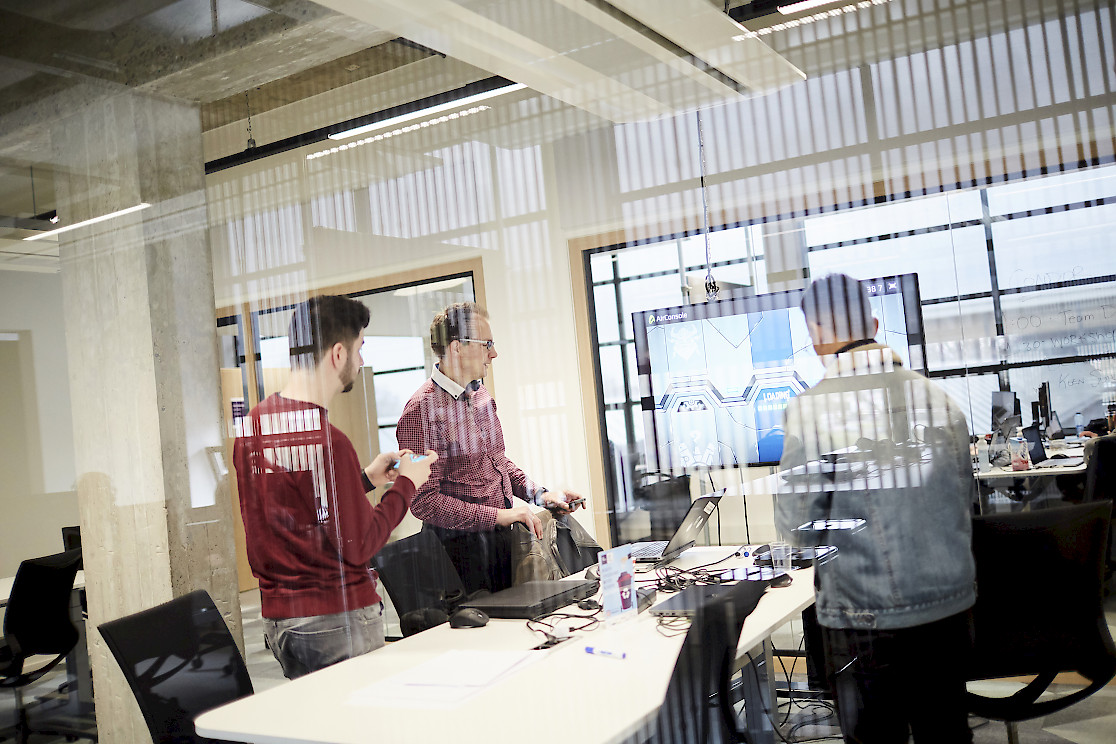What if you could reproduce a business park digitally?
 This project explores the possibilities for business parks, companies and the municipality to take a broader look at sustainable interventions. The project was carried out by Fontys Minor Circular Economy (leader of the Lectureship The Enterprising Region), Fontys ICT & Game Design, Entrepreneurial Venlo, the municipality of Venlo and the companies involved and is financed by the Expertise Centre High Tech Systems and Materials.
This project explores the possibilities for business parks, companies and the municipality to take a broader look at sustainable interventions. The project was carried out by Fontys Minor Circular Economy (leader of the Lectureship The Enterprising Region), Fontys ICT & Game Design, Entrepreneurial Venlo, the municipality of Venlo and the companies involved and is financed by the Expertise Centre High Tech Systems and Materials.
Building Digital Twins in Cities:Skylines
Wouter Sluis-Thiescheffer, senior researcher at Fontys University of Applied Sciences ICT, is exploring with his students the application possibilities of serious games: "These are computer games with a purpose other than entertainment, such as training, simulation or education." Cities:Skylines is an entertainment game in which the player can build entire cities. The maker (Paradox) offers the players the possibility to thoroughly adapt the game, which makes it possible to turn it into a serious game. This provides a perspective in the case of specific spatial issues, explains Sluis-Thiescheffer: "By adjusting the parameters with realistic data, we get a realistic picture of different types of interventions. You can make a kind of 'digital twin' of an existing area."
A game as a tool in sustainability processes
Decision-making in these sustainability projects is a "wicked problem"; there is no single ideal solution. Dankeld Vanmeenen, lecturer-researcher at the School of Economics and Communication, initiated the project after seeing his son playing the game. He explains the problem: "Sustainable initiatives are often driven by higher authorities, focused on one type of solution, such as solar panels. It is a challenge to get parties to think in a more scenario-based way so that more suitable solutions with combinations of interventions can be found with the money that is currently tied to one type of intervention. This gaming application provides an additional means of exploring different scenarios."
Finding the best solution for Spikweien
In the case of the Spikweien business park, for example, only 60% of the roofs are suitable for solar panels. To gain insight into the impact of other sustainability interventions, a game like Cities:Skylines can provide an accessible, cost-effective means of exploring alternatives and evaluating the impact achieved. The business park was treated as a case study in this project, in which various interventions were tested. Sluis-Thiescheffer emphasises that the results are indicative: "Despite the use of precise data, there are always more factors. Scenarios can be explored by means of a set of triggers to help in decision-making. A through calculation will have to take place separately."
Conclusion: Circular potential remains underused
As a means to an end, the game poses a number of challenges, the research team concluded. The target group is not familiar enough with the type of game, which makes game elements distracting. Use in a workshop format, with instruction and led by a trained workshop leader solves this and makes it possible to test a set of interesting interventions in a kind of social negotiation process. The second finding is that the sustainable and circular potential that business parks offer remains unused due to a lack of collective organisation. Ingrid Thijssen, chairwoman of the employers' organisation VNO-NCW, indicates that companies' reputation is in jeopardy and that they need to pay more attention to the wider welfare. Companies need their environment and an area-oriented approach, such as on Spikweien, to work on this, can make an important contribution. This requires change agents with the power to connect, who can bring local and corporate companies, the municipality, province and park management into line by finding the right points of contact. In a follow-up to the project, the collective organisation will be added to the scope of the study.
Creating the future with Digital Twins
It has been shown that the game has great potential as a 'digital twin' in answering similar questions. This project will therefore be taken as a case study in the development of a European Digital Twin Academy in which Fontys is a development partner. Amsterdam now also has a 'digital twin' and Eindhoven is exploring the possibilities.
Night of the Nerds 2021
The research group Applied Games within Fontys Hogeschool ICT investigates applications of games as human performance technology (HPT), but also as a means for scenario thinking. In current projects, students and researchers (often together with partners) are looking at the possibilities of using games as training and simulation tools. The Cities:Skylines project demonstrates this. The results will be presented during Night of the Nerds 2021 (22-26 March).